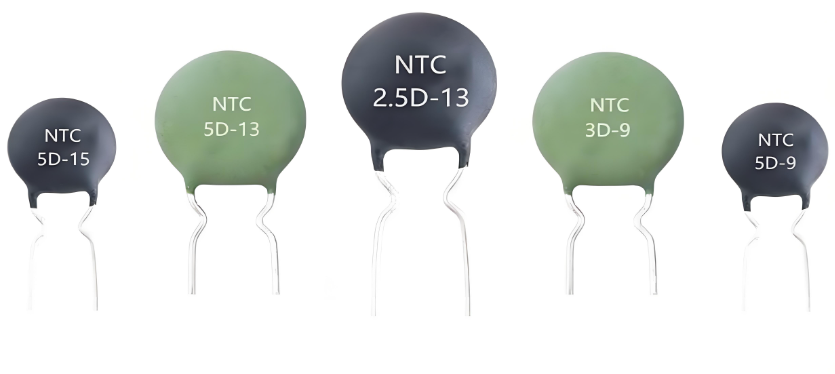Positive Temperature Coefficient (PTC) refers to a property exhibited by certain materials where their electrical resistance increases significantly as temperature rises. This unique characteristic makes PTC materials invaluable in a wide range of electronic, electrical, and industrial applications, particularly for self-regulating heating, overcurrent protection, and temperature sensing.
PTC materials operate based on a temperature-dependent resistance change. At low temperatures, these materials conduct electricity with relatively low resistance. As temperature increases—whether due to electrical current flow, ambient conditions, or external heat sources—the resistance rises gradually at first. Upon reaching a critical temperature (known as the switching or Curie temperature), the resistance spikes dramatically, often by several orders of magnitude. This abrupt change creates a self-limiting effect: higher resistance reduces current flow, which in turn limits further temperature increases, preventing overheating or damage to connected components.
Common PTC materials include:
-
Ceramic composites, such as barium titanate (BaTiO₃) doped with rare-earth elements, which are widely used in thermistors and heating elements.
-
Polymers infused with conductive particles (e.g., carbon black), known as polymer PTCs, valued for their flexibility and rapid response.
PTC devices, often called resettable fuses, replace traditional one-time fuses in many electronic circuits. When a current surge occurs (e.g., due to a short circuit), the PTC material heats up, causing resistance to spike and restrict current flow. Once the fault is resolved and the material cools, resistance drops back to normal, allowing the circuit to function again without manual replacement. This makes them ideal for:
-
Consumer electronics (smartphones, laptops, chargers)
-
Automotive systems (battery management, wiring harnesses)
-
Industrial equipment and power supplies
PTC heaters use the material’s resistance 特性 to maintain a stable temperature without additional controls. As the heater reaches its design temperature, resistance increases to limit power input, preventing overheating. Applications include:
-
Home appliances (hair dryers, electric blankets, coffee makers)
-
Automotive defrosters and seat heaters
-
Industrial process heating (food warming, equipment thawing)
-
Medical devices (incubators, heating pads)
PTC thermistors provide accurate temperature measurements in various environments. Their predictable resistance-temperature curve allows precise monitoring in:
-
HVAC systems (thermostats, climate control)
-
Medical equipment (patient temperature monitors)
-
Industrial machinery (overheat detection)
-
Battery management systems (thermal monitoring)
In power grids and renewable energy systems, PTC components regulate current flow and prevent overloads in solar inverters, wind turbine controls, and energy storage systems. Their rapid response helps maintain grid stability and protect sensitive equipment.
-
Self-Regulation: Eliminates the need for external control circuits, reducing complexity and cost.
-
Resettability: Unlike fuses, PTC devices reset automatically after a fault, enhancing reliability and reducing maintenance.
-
Safety: Prevents overheating and current surges, lowering fire risks and component damage.
-
Durability: Withstand repeated cycles of heating and cooling, ensuring long service life in demanding applications.
-
Compact Design: Small form factors make them suitable for miniaturized electronics and tight spaces.
The demand for PTC technology continues to grow, driven by advancements in electronics miniaturization, automotive electrification, and renewable energy adoption. Innovations focus on improving:
-
Temperature range flexibility (adapting to extreme hot or cold environments)
-
Response speed (faster resistance changes for critical applications)
-
Energy efficiency (reducing power loss in standby modes)
Industries such as automotive (electric vehicles, ADAS systems), consumer electronics (wearables, IoT devices), and industrial automation rely increasingly on PTC solutions to enhance safety and performance.
PTC materials, with their unique ability to balance conductivity and temperature control, remain a cornerstone of modern electrical engineering, enabling safer, more efficient, and reliable systems across global markets.
PTC, Positive Temperature Coefficient, PTC thermistor, resettable fuse, self-regulating heater, temperature sensing, overcurrent protection, ceramic PTC, polymer PTC, barium titanate, Curie temperature, electrical resistance, PTC applications, automotive PTC, consumer electronics PTC
